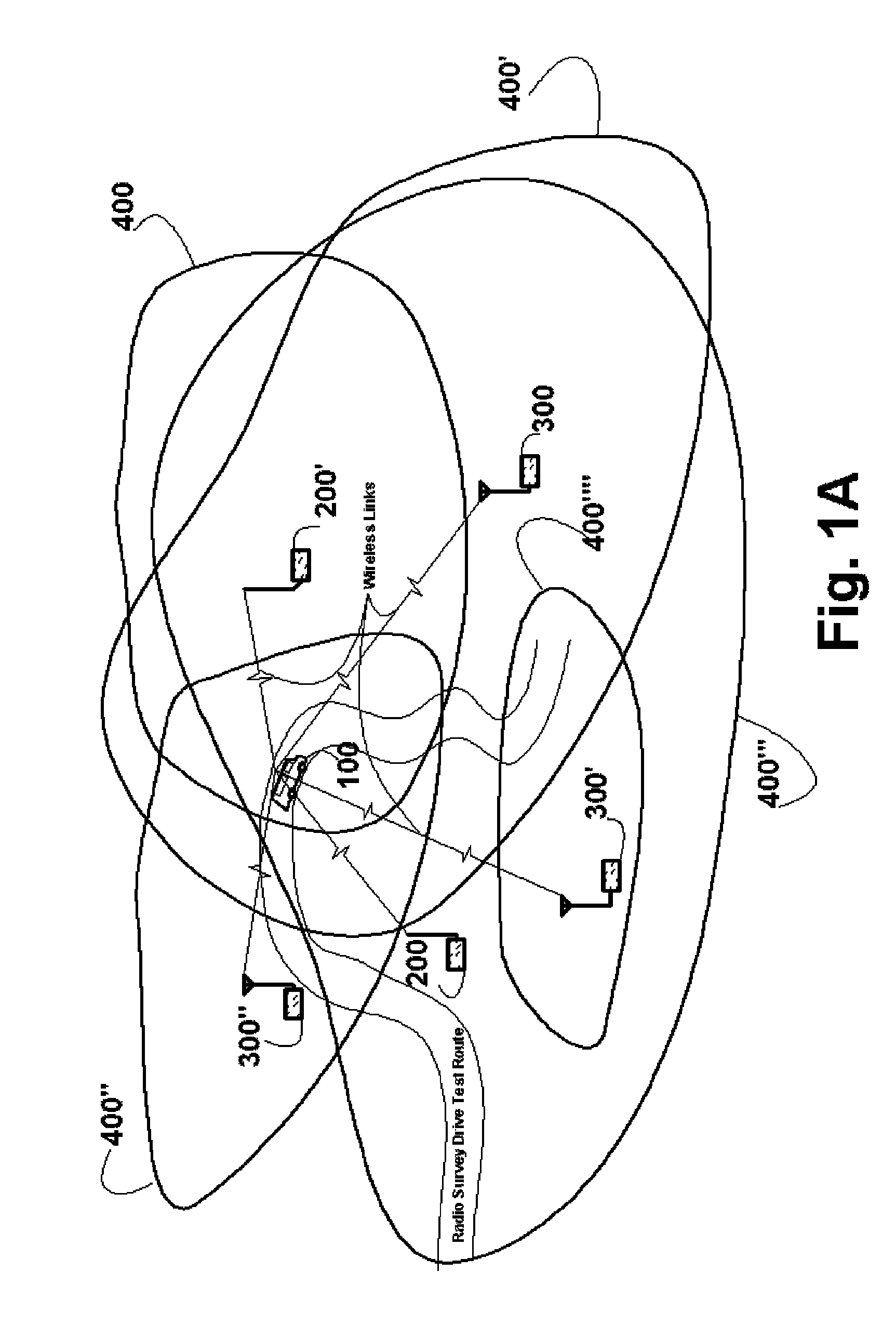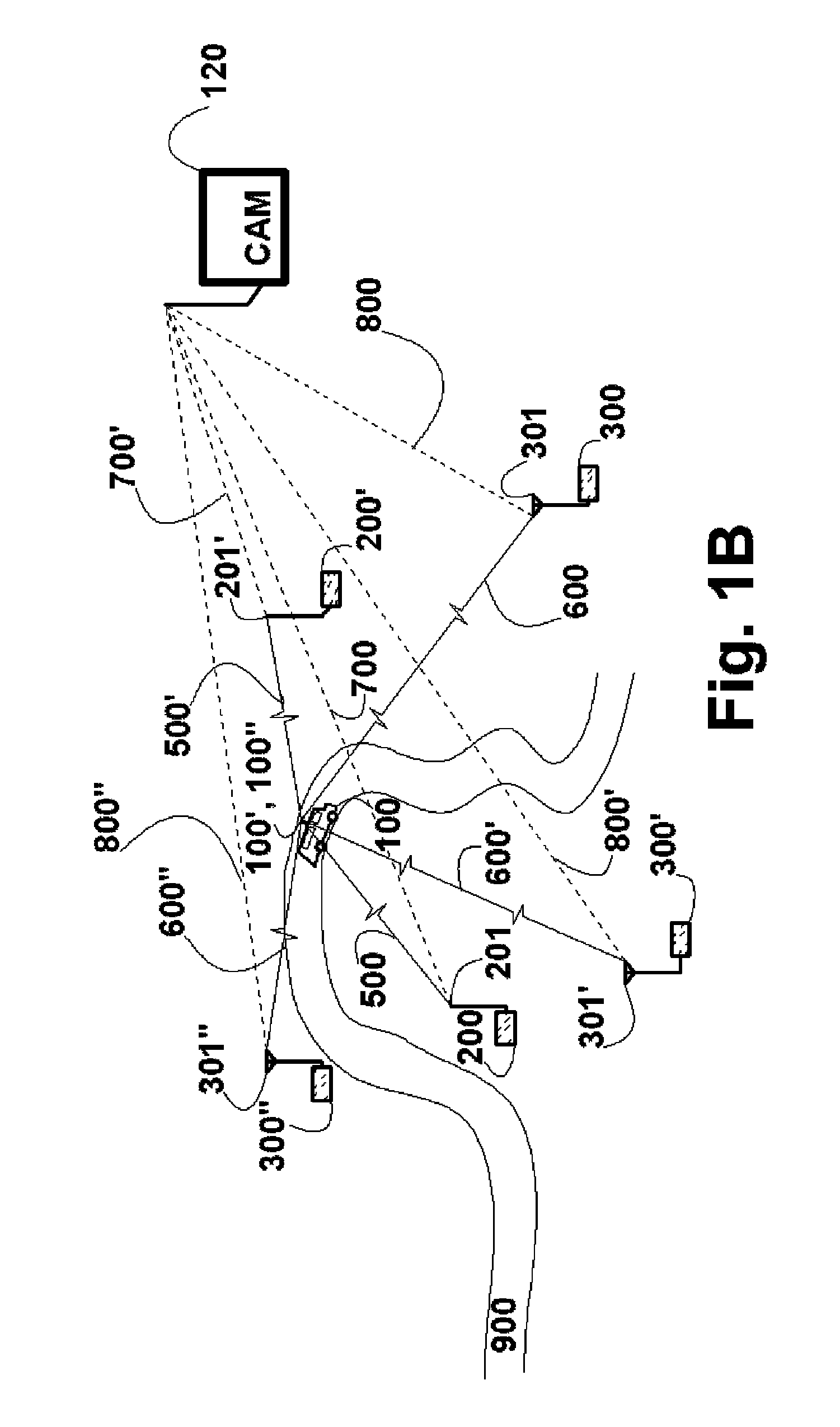System and method for point to multipoint radio survey
a multi-point radio and survey technology, applied in the field of mobile and fixed wireless communications systems, can solve the problems of time-consuming and costly, physical difficulty, and inability to accurately predict the signal level of all radio surveys in real world situations, and achieve the effects of reducing the number of radio surveys
- Summary
- Abstract
- Description
- Claims
- Application Information
AI Technical Summary
Benefits of technology
Problems solved by technology
Method used
Image
Examples
Embodiment Construction
FIGS. 1A and 1B Preferred Embodiments
[0070]FIGS. 1A and 1B illustrate radio survey test being preformed on the reverse radio link 500, 500′, 600, 600′, 600″ simultaneously for a plurality of prospective base station candidate sites 200, 200′, 300, 300′, and 300″ at each of which a Stationary Test Receiver 200, 200′, 300, 300′, 300″, etc. (STRX) has been placed. At each of the prospective candidate site's one Stationary Test Receiver 200, 200′, 300, 300′, 300″, etc. (STRX) is connected to a suitable omni-directional 201, 201′, etc. or a sectorized 301, 301′, 301″, etc. receive antenna configuration depending on the survey test requirements for that particular site.
[0071]In this preferred embodiment these Stationary Test Receivers 200, 200′, 300, 300′, 300″, etc. (STRX) sample the signal strength propagating towards them on the reverse radio link 500, 500′, 600, 600′, 600″ at any given moment in time from the Mobile Test Transmitter 101 (MTTX) transported in a suitable drive test vehi...
PUM
 Login to View More
Login to View More Abstract
Description
Claims
Application Information
 Login to View More
Login to View More - R&D
- Intellectual Property
- Life Sciences
- Materials
- Tech Scout
- Unparalleled Data Quality
- Higher Quality Content
- 60% Fewer Hallucinations
Browse by: Latest US Patents, China's latest patents, Technical Efficacy Thesaurus, Application Domain, Technology Topic, Popular Technical Reports.
© 2025 PatSnap. All rights reserved.Legal|Privacy policy|Modern Slavery Act Transparency Statement|Sitemap|About US| Contact US: help@patsnap.com



